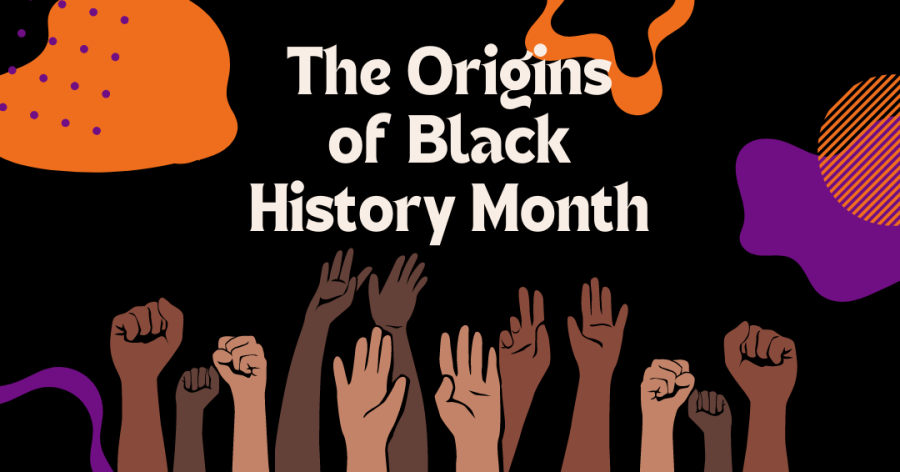The Origins of Black History Month
February 23, 2022
Black History Month is a celebration of the individuals, struggles and victories, from the Black community, dating back to when America was founded on July 4, 1776.
According to the Association for the Study of African American Life and Honors, Black History Month was created by an African American scholar named Carter G. Woodson in 1915. The idea first came to Woodson after he left Chicago to travel to Washington D.C. for a convention focused on the fiftieth anniversary of the Emancipation Proclamation and the progress that had been made since the abolishment of slavery.
Through the convention, Woodson observed how millions of his people marveled at the long difficult journey, that their ancestors have made since America’s founding years.
“ For many Americans (in Woodson’s time) Black people were not a part of history..” Joseph Weixelman, a history professor at Wayne State College, said, “I think back to the Dred Scott Decision, Chief Justice Taney implied that Black people have never helped the country or have never had military service. But Black people have been involved in the military in every war that the United States has fought. They were in the Revolution, War of 1812. But in the 19th Century, you have a chief justice say that Black people have no part in their history; that is the ignorance that Americans had.”
After witnessing the shared admiration of the exhibits and convention, Woodson decided to start his own organization in 1925 to document the contributions made by African Americans past and present. After Woodson developed his own association, his colleagues supported the development for Black History Month According to ASALH, Black History Month was only celebrated during the birthdays of Abraham Lincoln and Frederick Douglass.
Over time, the celebration of Black History Month has gone through changes because it used to be celebrated in a week, but soon was changed into a month when America entered into the Civil Rights Movement. During the movement, Black History Month saw the development of a sense of identity in platforms, where they were ignored or turned away from their basic civil rights.
Throughout the numerous sit-ins and marches, Black History Month became a nationally recognized celebration of resiliency, victory and contributions made by the African American community. Black History Month became a month to honor a previously marginalized group of individuals who had the courage and irrepressible desire for freedom without persecution due to their skin color.
As Black History Month continues to change and evolve with the passage of time, Woodson’s original purpose for this celebration still stands as a testament to honor the history, struggles and victories of a group that has contributed so much of their time and strength to the history of America.










